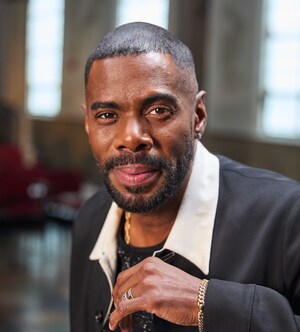American Democracy Examined at Racial Healing Conference
Legal, political and education scholars note importance of timing in challenging systems of privilege that are harming children of color
NEW ORLEANS, April 30, 2012 /PRNewswire-USNewswire/ -- Legal scholars, educators and community leaders from across the nation joined to discuss the impact of power and privilege on America's democracy and the future of the nation's children.
In a session moderated by Charles Ogletree, law professor and executive director of the Charles Hamilton Houston Institute for Race and Justice at Harvard, four panelists highlighted the importance of civic engagement in communities of color, which have been most recently threatened by voter suppression efforts.
Joining the panel was Donna Brazile, political strategist, syndicated columnist and television commentator, who said she got her start in politics at the age of nine. "And it was simply a request to build a playground in our community that motivated a child like me to go door to door, urging my friends to get their parents to go and register to vote. That was 1969. And here we are in 2012…I never thought I would see the day when we would spend most of our time and our resources protecting and defending the gains that we've made."
"Let's be very clear," said Barbara Arnwine, executive director of the Lawyers' Committee for Civil Rights Under the Law, "it [is] minorities, African-Americans, Asians, Native Americans, Latinos [and] students" who will be most affected by voter identification laws. The Brennan Center for Justice estimates the laws may prevent as many as five million persons of color, young people and the elderly from voting in 2012.
America Healing is the W.K. Kellogg Foundation's long-term effort to heal racial divisions by supporting dialogue, thoughtful research, and systemic policy change in local communities where inequities in health, education and financial security are limiting opportunities for children. Last week, nearly 500 leaders of community-based organizations, civil rights groups, academic research institutions and members of the media took part in the four-day meeting in New Orleans.
Joining Brazile and Arnwine in the conversation were Ian Haney Lopez, a law professor at the University of California, Berkeley and Peggy McIntosh, associate director of the Wellesley Center for Women.
In addition to a focus on controversial state-level voter identification laws, the panel also discussed the importance of supporting teachers as they explore how the anti-democratic notion that privilege can be conferred and denied based on race and ethnicity, can make its way into the classroom and negatively impact the potential of students.
McIntosh, who leads an institute that trains teachers around issues of racial privilege, asserted that a "democratic" approach to education ultimately helps teachers understand the "reality and validity of every child in their care."
Adding to the idea that power and privilege can harm vulnerable populations was Haney Lopez, who detailed how racism has evolved from the challenge of segregation in the 1950s and 1960s to now "mass incarceration," which has a disproportionate impact on young African American and Latino males, and "mass deportation" of undocumented persons, which has led to thousands of parents having to leave their children behind in the care of the child welfare system—a sometimes dangerous and often damaging process, according to the Applied Research Center, which is a grantee organization of the Kellogg Foundation's America Healing effort.
The 2012 elections were emphasized as critical in advancing policy and community-level solutions to many of the systemic challenges facing children of color and their families.
"We have to increase the level of civic engagement and civic information and civic education in communities of color. We cannot rely on politicians," said Brazile, herself a formidable political operative. "We should not rely on political parties. And God, please do not rely on the media."
W.K. Kellogg Foundation
The W.K. Kellogg Foundation (WKKF), founded in 1930 as an independent, private foundation by breakfast cereal pioneer, Will Keith Kellogg, is among the largest philanthropic foundations in the United States. Guided by the belief that all children should have an equal opportunity to thrive, WKKF works with communities to create the conditions where vulnerable children can realize their full potential in school, work and life.
The Kellogg Foundation is based in Battle Creek, Mich., and works throughout the United States and internationally, as well as with sovereign tribes. Special emphasis is paid to priority places where there are high concentrations of poverty and where children face significant barriers to success. WKKF priority places in the U.S. are in Michigan, Mississippi, New Mexico and New Orleans; and internationally, are in Mexico and Haiti. For more information, visit www.wkkf.org.
New Orleans was chosen as the site of this second annual grantee meeting because the foundation considers New Orleans a priority place for investments and several grantees in the city were involved in the conference.
For more information, visit www.wkkf.org.
SOURCE W.K. Kellogg Foundation
WANT YOUR COMPANY'S NEWS FEATURED ON PRNEWSWIRE.COM?
Newsrooms &
Influencers
Digital Media
Outlets
Journalists
Opted In





Share this article